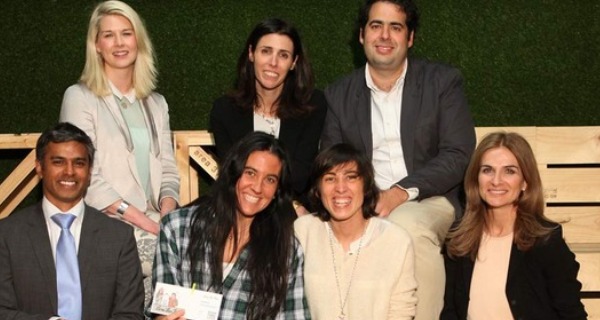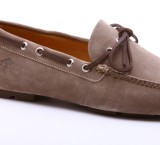On the 2nd of July 2014, IE Business School will hold the 4th edition of the IE Awards on Sustaintable Premium and Luxury, a socio cultural accolade that acknowledges each year the luxury and premium business sector’s best practices and innovation in the area of sustainability.
It pursues two goals:
- Recognize luxury and premium sustainability culture and practice in the private sector
- Teach that today, the idea of luxury and premium is associated with the possibility for people to express their deepest values.
Three categories are admitted: apparel and accesories, jewlery or watches and tourism including hotels. And three honorees are represented: lifetime contribution to sustainable luxury development, best contribution in raising awareness and latin American sustainable luxury.
Miguel Angel Gardetti, head of the award to the best performance in sustainable luxury, was interviewed by Maria Eugenia Girón, Executive Director of the IE Observatory of Premium and Prestige Business:
MEG: In 2014, IE will host the fourth annual award for sustainable projects in the premium and luxury sector. Why did you decide to set up this award in 2011?
MAG: I belong to an organisation which is dedicated to teaching and research in sustainable development within the private sector and have personally been involved in research related to the luxury and premium industry and sustainability over the last five years. As such, we have contributed by giving lectures at conferences, holding classes, training teachers in this area and by publishing material in both journals and books. But the impact of all of this has tended to be slow and rather long term. The idea of coming up with an award in the premium and luxury sector was to rapidly spark a debate about sustainability in these industries.
MEG: Why is this fourth edition being hosted at IE?
MAG: Latin America is steeped in Spanish history and culture. We have many ties with Spain. Add to this there is the prestige that the IE Business School and its Observatory of Premium and Prestige Business have in Europe, and I need say no more. Yet the focus that IE has on entrepreneurship and internationalisation must also be stressed, since it has offices in 20 different countries, with students from over 80 countries.
MEG: This award has evolved and is now focused on enterprising business projects as well as giving out honourable mentions. Is the answer to sustainable premium and luxury in entrepreneurship?
MAG: There are people who are looking deeply into environmental and social problems and who have good reasons to want to "break" the rules and favour disruptive solutions to problems that arise in these areas. They are entrepreneurs. There is a relationship between personal values and sustainability, entrepreneurship and innovation. And in practice, this was observed during the first three editions of this award. Those who were noticed are transformational leaders, inspiring, intellectually stimulating and possessing a very significant and strong regard for people and the environment. It is important to emphasise that leadership and inspiration are together vital for bringing about a change towards sustainability. Clearly, the initiative of entrepreneurs is what is currently leading the way along the path to sustainable premium and luxury.
MEG: As a textile engineer, when did you become interested in sustainability, and why?
MAG: My vocation for promoting, teaching and researching sustainable development began in the mid 1990s. At the time, I was convinced that sustainable development had arrived and was here to stay. And not only that, I didn't see – nor do I now – any other choice, due to the unsustainable behaviour of the human race. We are talking, for example, about the indiscriminate exploitation of natural resources (some of these resources are running out and others can no longer be recovered). We are talking about species becoming extinct (which unless there is a technological miracle, we will never be able to get back), and about consumerism (how much is enough?). We are talking about the chronic exploitation of human beings as a means to wealth... and we could continue with a long, completely negative, list of effects resulting from this behaviour.
MEG: Are there are any sectors or geographical areas that stand out?
MAG: A couple of years ago in a brief online lecture that I gave as part of the MBA at IE, I mentioned that Latin America was the birthplace of sustainable luxury. The previous three editions of the award have served as practical proof of this for entrepreneurs from different backgrounds - Asians, Americans and Europeans – as they began to develop projects based on Latin American culture (many of them were based on the culture of the indigenous people of Latin America). Of course projects are also developed in other regions, but the great appreciation of indigenous culture in Latin America and the way in which it has been transposed to the world of luxury and premium goods has been quite remarkable. Outside the world of entrepreneurship, the "discovery" by Hermès of an ancient craft is also a testimony to this, as the brand has breathed new life into its products whilst bringing the ancient embroidery of Tenango in Mexico to the world (textile art typical of the Otomi region of Tenango de Doria, in Hidalgo, Mexico).
|






